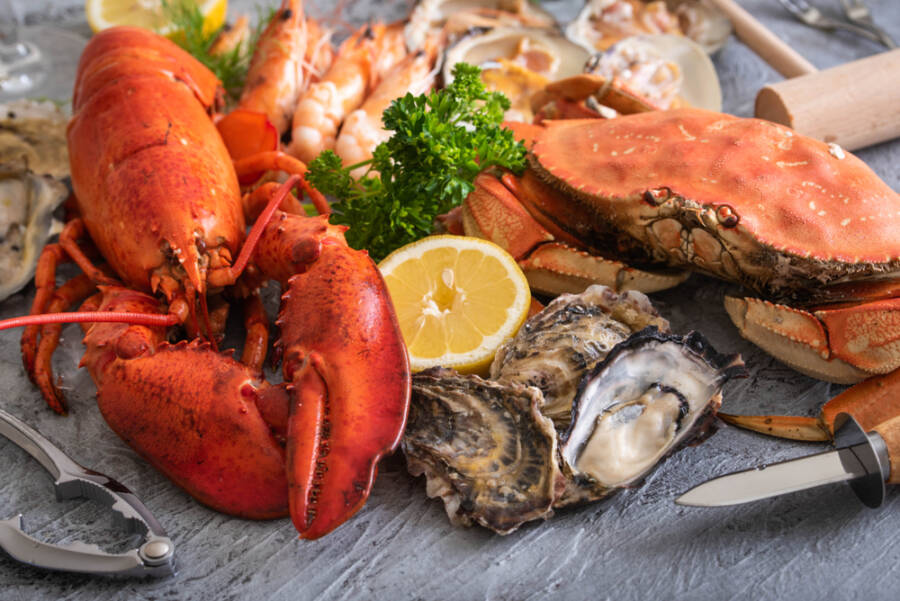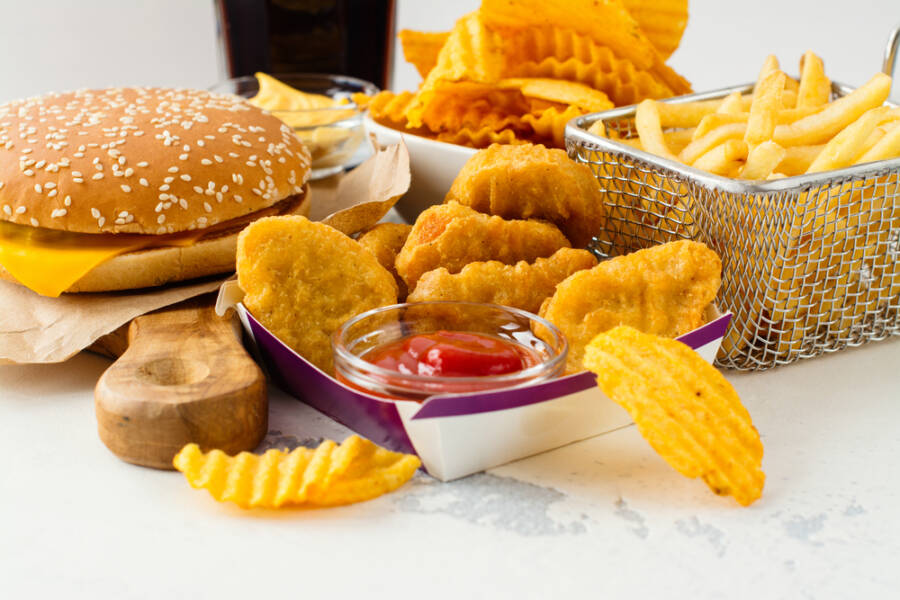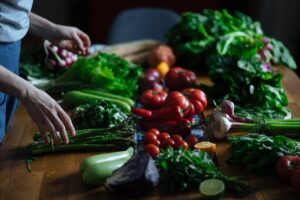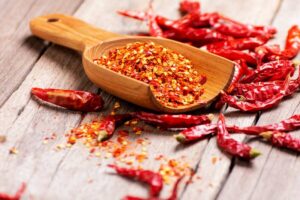Those who have lung disease should avoid certain foods!
Whether you have lung issues or want to ensure you’re doing all you can to keep them strong, keeping your lungs as healthy as possible is always a good idea.
But the reality is that when suffering from lung disease, we tend to focus on external factors like smoking, air pollution, or lung infections while overlooking the vast impact our diet can have on the overall health of our lungs.
It’s no secret that healthy lungs are vital for a healthy life. Yet, many of us unknowingly devour foods that can harm our respiratory system and worsen breathing issues.
If you have lung disease or want to reduce your risk of any respiratory illnesses, what you eat can be great medicine. Choose wholesome foods packed with the vitamins and minerals your body needs, like pumpkin, leafy greens, and apples.
But be sure to stay away from the following 10 foods if you know you’re dealing with lung disease.

Eggs
Eggs are one of the most common ingredients in many meals and are a fantastic source of protein and many other nutrients.
But sadly, some researchers believe that the properties in eggs can activate the histamine production, which in turn triggers mucus production in your body.
Another opinion is that eggs contain a protein known as ovalbumin, which can cause an immune reaction in some individuals. When the body senses this protein, it creates antibodies, which cause inflammation and lead to increased mucus production.
This isn’t to say you should avoid eggs entirely if you’re suffering from lung disease. But, if you’re experiencing mucus problems, you might want to be mindful and consider limiting your intake.
Vegetable Oil
Vegetable oils contain lots of unhealthy fats that can lead to inflammation, heart disease, increased weight gain, increased mucus production, and even cancer.
Avoiding them as much as you can and balancing them with healthy fats, like omega-3 fatty acids, is vital for those suffering from lung disease.
Vegetable oils are often used in the food industry and are a staple in many people’s everyday meals. But they’re dangerous for your lungs. Other oils you should try to avoid are:
-Canola oil
-Sunflower oil
-Soybean oil
-Corn oil
-Grapeseed oil
-Safflower oil
Corn
Corn is a popular veggie in many cuisines all over the world. But even though this delicious summer food may seem harmless, some researchers believe that it can negatively impact the immune and respiratory systems.
Corn contains mycotoxins, which can raise the risk of several health issues, including cancer. One particular study found that subjects who ate corn had increased mucus and itching, sneezing, and a runny nose.
The subjects were also more likely to have an asthma attack. More research is needed on the matter. But if you suffer from lung disease and are worried that corn can affect your lungs, you may want to consider eliminating it from your diet entirely.
Fast Food
It doesn’t come as a surprise to find that fast food is unhealthy. Yet, many are shocked to hear that overeating fast food can increase mucus production, contributing to lung disease.
A study discovered that eating fast food was connected to an increased risk of developing asthma. The study found that for every additional serving of fast food consumed per week, the risk of asthma grows by 18%.
One of the tragic side effects of asthma is excess mucus production. Furthermore, most fast foods are fried in vegetable oil, which, as we mentioned, only makes things worse.
Sodium
Most of the US population consumes far too much sodium in their daily diets. In fact, many of the everyday foods we eat are chock-full of sodium, which could affect those with lung disease.
Sodium causes retention of fluids, which in turn increases the risk of pulmonary hypertension. Research shows that it can also increase the risk of chronic bronchitis. Also, sodium causes inflammation, raising mucus production and making breathing more challenging.

Shellfish
Shellfish, like lobster, shrimp, and crab, contain elevated levels of purines. When these purines break down in your body, they produce uric acid, which can cause your lungs to be inflamed.
This inflammation can lead to breathing troubles and increase the risk of lung disease, including COPD. Besides this, shellfish is one of the most common food allergens and can activate the severe reaction known as anaphylaxis.
This can cause problems with breathing, swelling of the airways, and decreased blood pressure levels.
So, even though eating shellfish in moderation can be a healthy source of protein and many other nutrients, those with asthma or any other pre-existing lung conditions should be careful and consider alternative protein sources.
And to be sure your blood pressure levels are where they should be, we recommend purchasing a monitor to stay on top of your health. Here’s one of our favorites from Amazon.
Processed Meat
Researchers found that consuming processed meat was related to an increased risk of COPD, a.k.a. chronic obstructive pulmonary disease, a type of lung disease that makes it more challenging to breathe.
Also, processed meats contain sodium nitrite, which is a carcinogen that raises your risk for certain types of cancer, including lung cancer. These meats are treated with preservatives and additives to enhance flavor and lengthen their shelf life.
But sadly, these same culprits can be detrimental to the health of your lungs. The meats we’re talking about can include:
-Hot dogs
-Bacon
-Ham
-Lunch meat
-Sausage
Dairy
It’s no secret that dairy is a fantastic source of calcium and many other nutrients. But sadly, it has been shown to affect a person’s respiratory system. In fact, one study concluded that drinking milk increased mucus production in the respiratory tract.
It was also connected to a growth in the number of colds individuals experience. Researchers also found that eating cheese releases histamines in one’s body, which can also increase mucus production and airway inflammation.
So, limiting dairy products may be a good idea if you’ve been struggling with excess mucus and congestion or if you have any type of lung disease.
Cruciferous Vegetables
Even though cruciferous vegetables like cauliflower and broccoli are generally considered healthy, they contain glucosinolates, which are compounds that can cause bloating and gas in some individuals.
This can pressure the lungs and limit expansion, making breathing more challenging. This is especially true for people with pre-existing lung conditions like asthma.
We must note that the overall health benefits of eating cruciferous vegetables typically outweigh any potential adverse effects on lung health.
Nevertheless, if you’re experiencing problems breathing after consuming cruciferous vegetables, limiting the consumption of these types of veggies can be helpful in keeping any kind of lung disease at bay.

Trans Fats
Trans fats are unsaturated fats created through hydrogenation, which turn liquid vegetable oils into solid fats. This function alters the chemical structure of the fat, making it less likely to spoil and more stable, which is why they’re typically used in processed foods.
These fats are particularly harmful to our health. They can raise levels of bad cholesterol in the body while reducing levels of the good kind, which can lead to an increased risk of stroke, type 2 diabetes, and heart disease.
All this can indirectly affect a person’s lungs because the cardiovascular and respiratory systems work together to pump oxygenated blood through our bodies.
Trans fats have also been connected to inflammation, a critical factor in numerous chronic diseases, including those that concern the respiratory system.
Are you or someone you care about suffering from lung disease? If so, try to stay away from the foods we mentioned above. Your doctor can also help by discussing the best foods to eat in this case.
If you found this article helpful, we highly recommend you also read: Cardiologists Refuse To Eat These 9 Simple Foods







